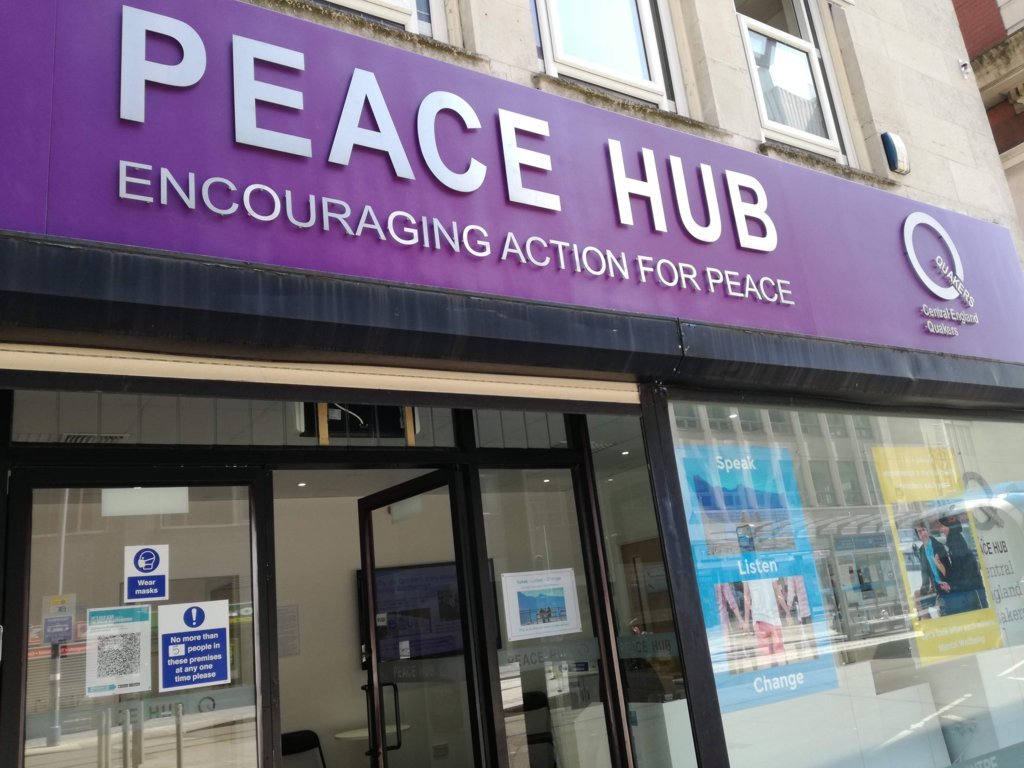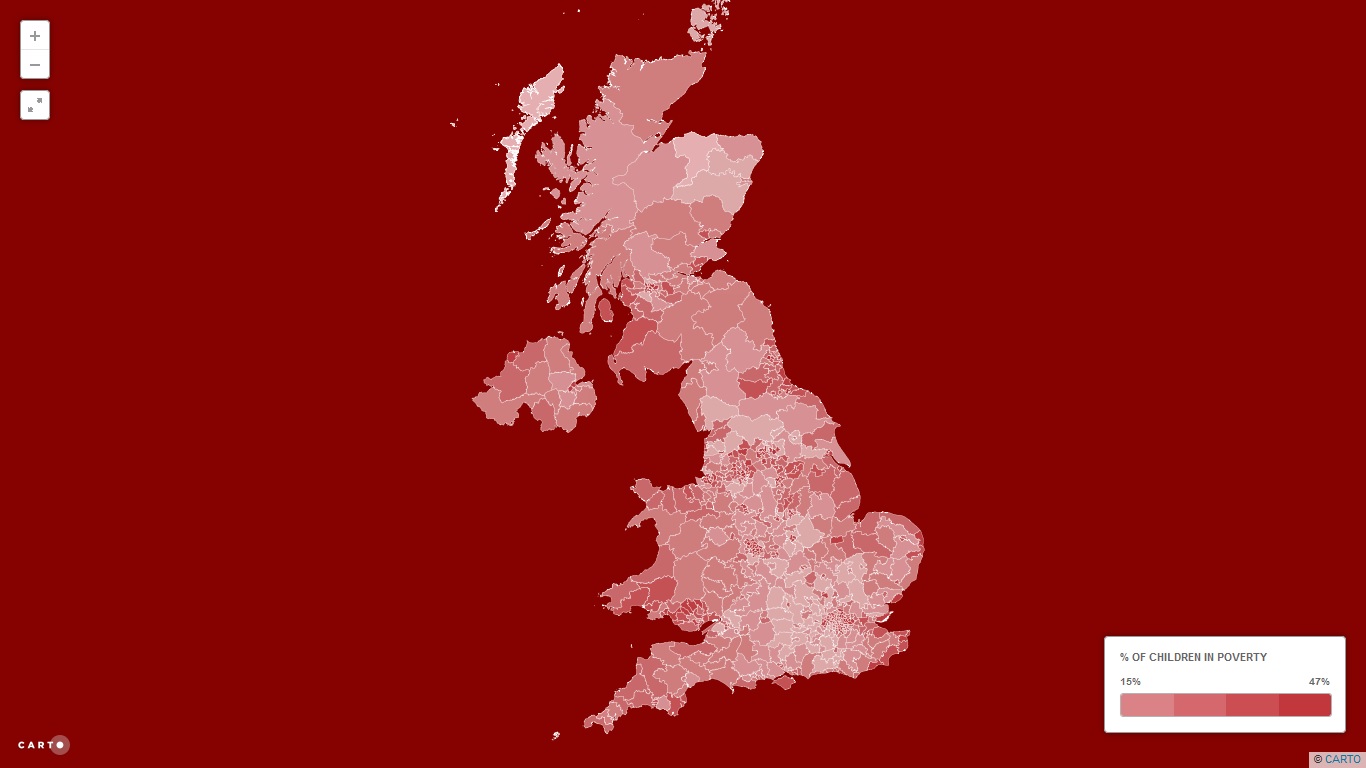Image: End Child Poverty‘s map of child poverty levels in the UK.
Our current theme Think Global, Act Local, Get Equal is all about challenging inequality, and making our economy work for everyone.
This week has given us a stark reminder of how pervasive inequality is: even in a prosperous city like Birmingham.
On Thursday, the Birmingham Post & Mail released their annual ‘Birmingham Rich List’ highlighting the personal fortunes of the 50 richest individuals in the Greater Brum area. Apparently three new people have joined the ‘billionaires club’, bringing the total to 8. All 50 people listed had personal wealth of at least £100million.
Presumably meant as a bit of fun, the article takes a tone of ‘haven’t they done well for themselves?’ and makes a point of saying that these super-rich individuals give to charity and support the local economy.
But it all leaves a bit of a sour taste when, just the day before, the group End Child Poverty had released a report estimating that in some areas of Birmingham, over half of all children live in poverty.
The coalition of child-poverty organisations used the widely accepted definition of relative poverty: i.e. being part of a family living on less than 60% of median household income. According to the latest official statistics 60% of median income (after housing costs) was around £248 per week. Across Birmingham, 42% of children are living in relative poverty, while in Ladywood and Hodge Hill constituencies, the figure is over 50%. You can see the levels of child poverty in your area on an interactive map.
The huge gap between the richest and poorest in our city makes difficult reading. But together we can act to tackle inequality.
End Child Poverty have an action on their website, asking you to write to your local paper to highlight the issue.
And at the other end of the inequality scale, pop into Peace Hub to take action to call on large corporations to pay their fair share.
Let’s Act Local to start making our economy work for everyone!


